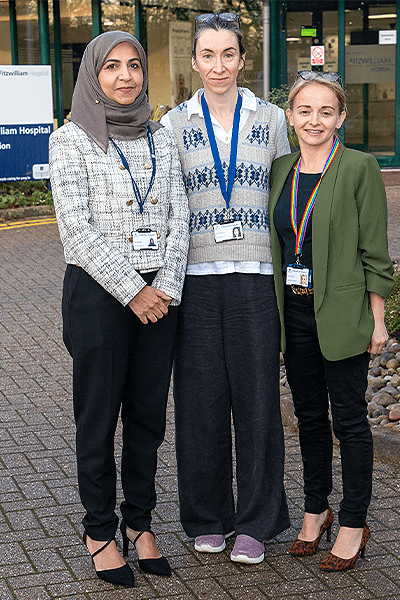Fitzwilliam Hospital Specialists
-
Mr Farrukh Bajwa
Mr Farrukh Bajwa is a Consultant General Surgeon in Peterborough working at the Fitzwilliam Hospital.
Read more -
Mr Santosh Bhandari
Mr Santosh Bhandari is a Consultant General and Colorectal Surgeon in Peterborough
Read more -
-
-
-
Mr Rohit Makhija
Mr Rohit Makhija is a Consultant Surgeon at Fitzwilliam Hospital, Peterborough specialising in general, laparoscopic and colorectal surgery.
Read more -
-
Mr David Mitchell
Mr David Mitchell is a Consultant Colorectal and General Surgeon in Cambridgeshire
Read more -
Ms Seok Ling Ong
Ms Seok Ling Ong is a General Surgeon in Cambridgeshire who specialises in Laparoscopic and Hepatobilary Surgery
Read more -
-
Mr Andrew Tsang
Mr Andrew Tsang is a Consultant General Surgeon in Peterborough, Cambridgeshire
Read more



